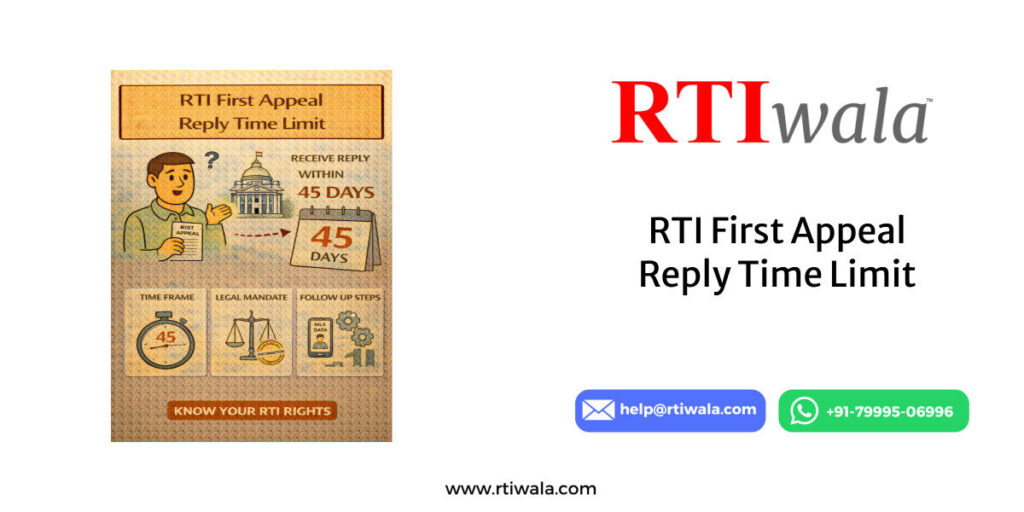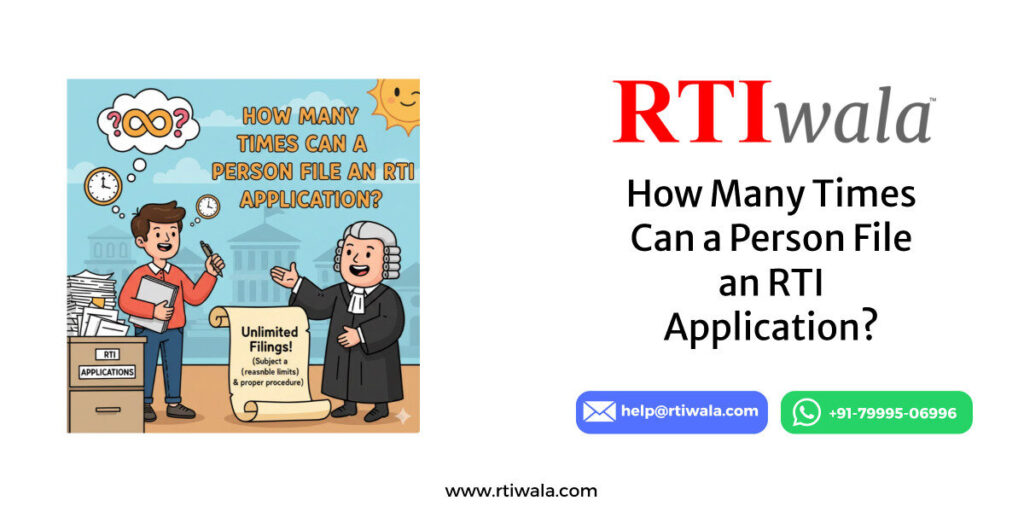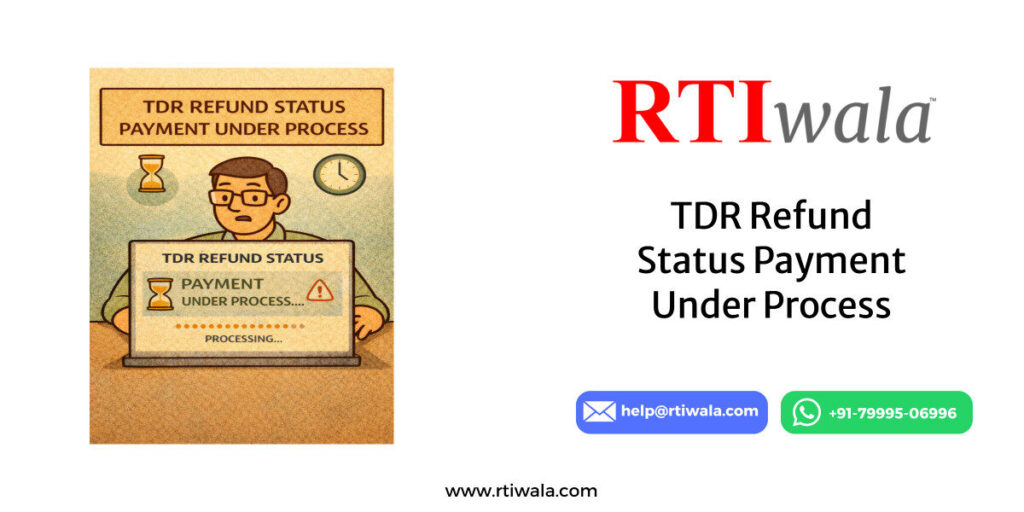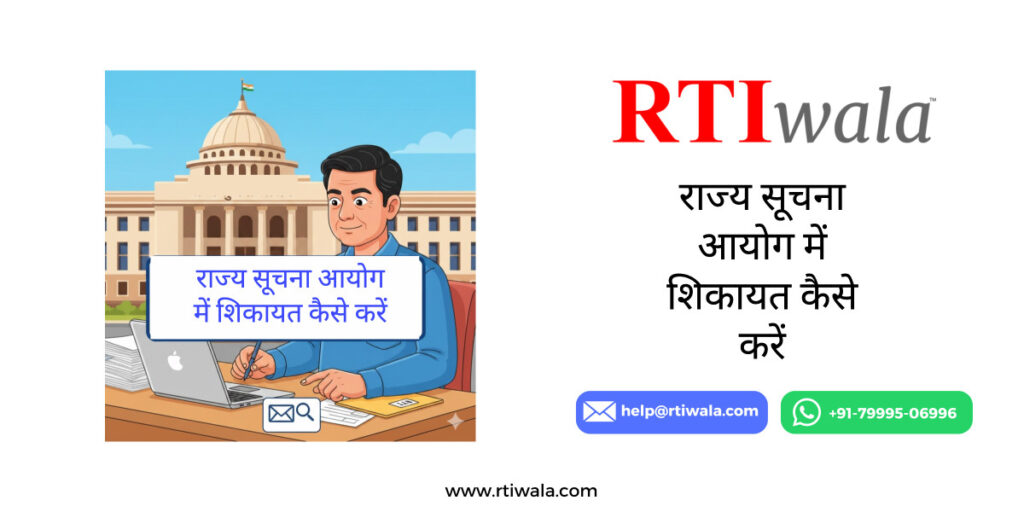Table of Contents
- Introduction
- What Details Can We Get from a PAN Card?
- Can One Know Any Person’s Income Through His PAN Number?
- How RTI Act Works in Context to PAN
- Filing an RTI for PAN Information
- RTIwala: Your Partner in Filing RTI
- Common Challenges and How to Overcome Them
- Conclusion
Introduction
The Permanent Account Number (PAN) is an essential document for financial transactions and identification in India. Issued by the Income Tax Department, a PAN card acts as a unique identifier for both individuals and entities. In this article, RTIwala explores the details found on a PAN card, the kind of information that can be derived from it, and how the Right to Information (RTI) Act can be effectively used to obtain relevant information related to PAN cards, ensuring transparency and clarity.
If you need official confirmation of your PAN details, correction records, or status of any pending PAN update, or any type of details through PAN Card RTIwala helps you obtain accurate, government-verified information through a legally drafted RTI. Our expert team ensures transparency, faster responses, and complete guidance so you get exactly what you’re searching for.
📞 Call: +91-7999-50-6996
💬 WhatsApp: https://api.whatsapp.com/send?phone=916260458510
What Details Can We Get from a PAN Card?
A PAN card contains several critical pieces of information, including:
- PAN Number: A unique 10-character alphanumeric identifier.
- Name: The cardholder’s full name.
- Father’s Name: The father’s name of the individual.
- Date of Birth: The cardholder’s date of birth.
- Signature: The cardholder’s signature.
- Photograph: A passport-sized photo of the cardholder.
These details are essential for various financial and official purposes, such as opening a bank account, filing income tax returns, and conducting high-value transactions.
Can One Know Any Person’s Income Through His PAN Number?
No, the income of an individual cannot be directly known through their PAN number. While the PAN number is linked to all financial transactions and income tax filings of an individual, this information is confidential and protected under privacy laws. Unauthorized access to such personal financial details is illegal and punishable under Indian law.
However, one can request information related to their own PAN transactions or tax filings through RTI applications. For example, if you want to know the status of your tax returns or specific transactions linked to your PAN, you can file an RTI application to the Income Tax Department.
How RTI Act Works in Context to PAN
The RTI Act 2005 empowers citizens to seek information from public authorities, including details related to their PAN cards. Here’s how it can be applied in the context of PAN:
- Information Access: You can request details about your own PAN-related transactions, status of tax filings, and other associated information.
- Transparency: Ensures transparency in the workings of the Income Tax Department and helps you understand how your tax information is being processed.
- Accountability: Holds the department accountable for any discrepancies or delays in processing your PAN-related queries.
To file an RTI for PAN information, you need to draft a precise application and submit it to the relevant public authority, usually the Central Public Information Officer (CPIO) of the Income Tax Department.
Get Your PAN Card details With RTIwala.
Filing an RTI for PAN Information
Here’s a step-by-step guide to filing an RTI application for PAN information:
- Drafting the Application: Clearly mention the information you are seeking.
- For example, “I wish to know the status of my tax return filed for the year 2023-24 linked to PAN ABCDE1234F.”
- Submitting the Application: Submit your application either online or via postal service to the CPIO of the Income Tax Department.
- Paying the Fee: A nominal fee is required to file an RTI application.
- Tracking the Application: Once submitted, you can track the status of your RTI application through the RTI portal.
Need help with filing your RTI application? RTIwala offers expert assistance to ensure your application is correctly filed and processed efficiently.
File Online RTI or use Anonymous RTI—no name, no personal details, and absolutely no unnecessary disclosure.
RTIwala: Your Partner in Filing RTI
Filing an RTI application can sometimes be complex and time-consuming. RTIwala simplifies this process by offering:
- Expert Guidance: Professional help in drafting and submitting your RTI application.
- Time-saving: Efficient handling of your application, ensuring timely responses.
- Hassle-free Experience: Comprehensive support from start to finish, making the entire process seamless.
Opt for RTIwala to make your RTI filing process smooth and successful.
Common Challenges and How to Overcome Them
Filing an RTI for PAN information can sometimes present challenges, such as:
- Delayed Responses: Public authorities may delay their responses.
- Incomplete Information: The provided information may be incomplete or unclear.
- Rejections: Applications may be rejected if not drafted correctly.
RTIwala helps overcome these challenges by ensuring your application is precise and follows all guidelines, thus minimizing the chances of delays or rejections.
Conclusion
Understanding the details present on a PAN card and knowing how to use the RTI Act to access relevant information can greatly enhance transparency and accountability. Whether you need to check the status of your tax returns or seek information about your PAN transactions, filing an RTI can provide the answers you need. For a smooth and efficient RTI filing experience, trust RTIwala to assist you every step of the way.






















































